In the days after his unexpected death, it was impossible for us to look around L.A. without seeing Greg.
To many readers of the Los Angeles Times, Greg Yee was a talented reporter, someone who put rare determination into everything he wrote.
A native of Los Angeles, he had worked at publications in New Mexico, Long Beach and Charleston, S.C., before returning to L.A. at The Times.
As anyone familiar with Greg’s writing would tell you, he wrote with flourish while always keeping the integrity of a piece. He saw narratives everywhere he went and used this talent to shine as a reporter and storyteller.
Greg Yee was a native of Los Angeles.
(Greg Yee / Los Angeles Times)
The Greg we knew was much less serious.
We knew a younger, less-experienced but no-less-polished Greg, working with him at our college’s newspaper, UC Irvine’s New University, in 2012. He was editor in chief, and we were editors under his wing. While he was technically our boss in the newsroom, outside it, he was one of our best friends, a companion on many ill-considered misadventures and someone we thought we’d be reminiscing with for many years to come.
He was a goofball, occasionally pretentious, but always kind and dependable. He was the type of person you could count on, so stalwart and reliable.
When we found out he was gone, there was a moment of complete disbelief: “You’re talking about a different Greg, right? Greg, Greg?” He seemed like he’d always be around — until he wasn’t.
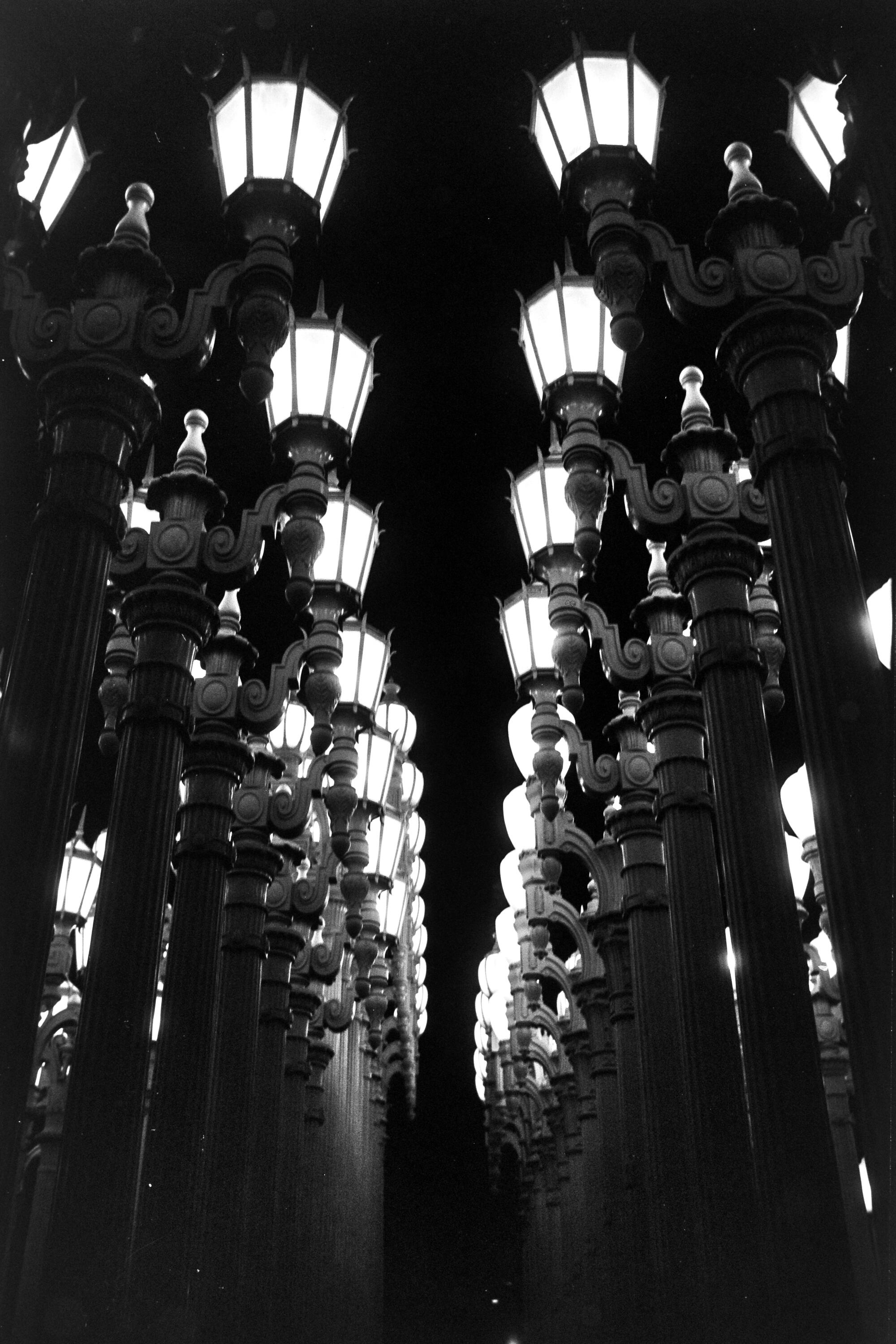
Greg Yee’s image from the Urban Light installation at the entrance to the Los Angeles County Museum of Art.
(Greg Yee / Los Angeles Times)
His mark is everywhere in Los Angeles; he was born and raised here, and he loved this city like no one else.
When we were in college in Orange County, he used to drive us up to L.A. and take us around the city, pointing out murals or landmarks with the practiced recitation of an old-school cab driver.
Though many of our friends grew up in Southern California, some had never experienced L.A., and those of us who came from out of town found our first real view of the city through the window of Greg’s old Mazda. Though he could be emotionally private, we knew these drives were a way for him to show that he cared for us.
After years of working in Charleston, Greg’s move back to Southern California was a celebrated homecoming. As far as we knew, working for The Times was his dream job. His return to L.A. coincided with a burgeoning interest in film photography, so naturally his lens pointed toward the things he held closest: his family, his friends and his city.
After he died, we learned just how much he loved L.A..
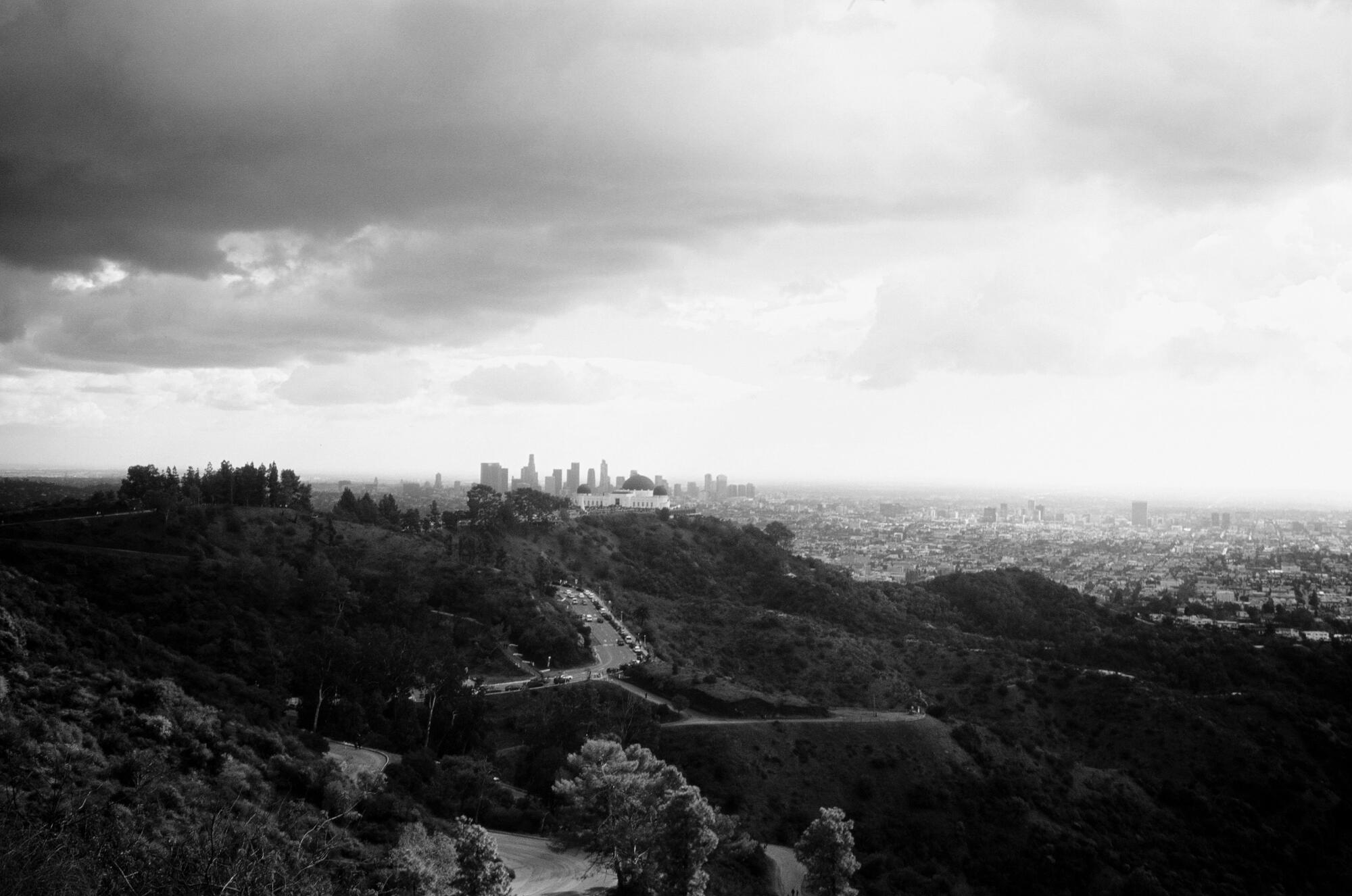
A scene of Griffith Observatory overlooking downtown Los Angeles.
(Greg Yee / Los Angeles Times)
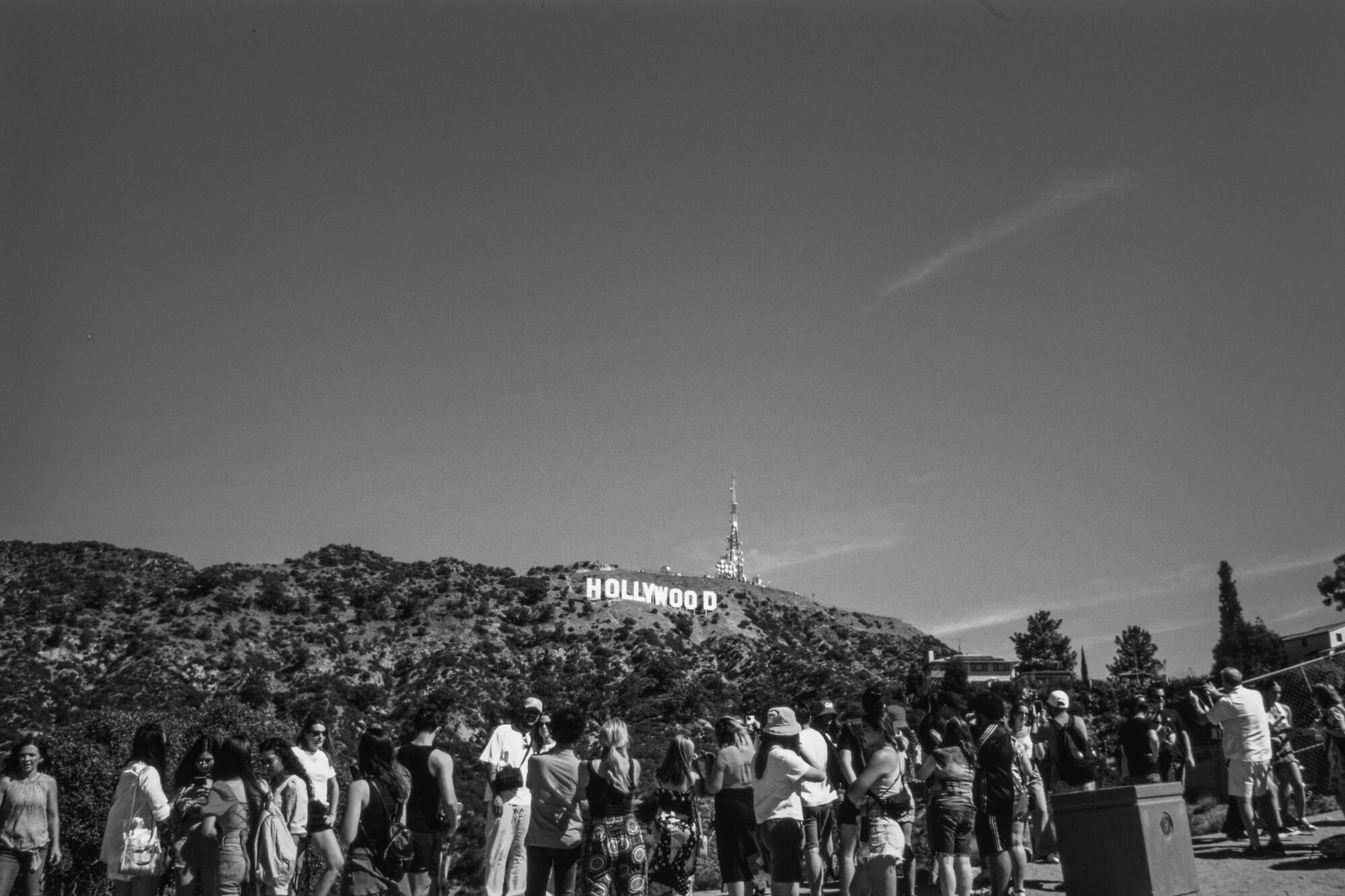
A crowd of tourists gathers to take photos of the Hollywood sign.
(Greg Yee / Los Angeles Times)
With the help of his family, we discovered hundreds of film negatives of L.A., many taken on drives around the city and shot through the window of his car with his film camera, a Leica M2.
He used to text us some of his photos, most often blurry or overexposed shots (his camera was completely manual), with some kind of madcap tale about how he got the photo. What we didn’t know was that he had kept some of his best photos to himself. Perhaps he was saving them to publish someday, but more likely, he had no ambition for them at all.
Greg’s eye was unique: He had an enthusiasm and appreciation for the natural contours and man-made attractions that others might pass by, but that’s who he was as a man too. He was never the kind of Angeleno who disparaged the city, and if anyone did, he leapt to its defense.
His photography mirrored this ardent love of the city.
While the casual observer might read the blurred lines as technically clumsy, we view them as giddy, the kind of shaky-handed enthusiasm of someone with so much affection for Los Angeles that it overflowed.
Where a cynic might scoff at the image of a tourist trap, we know he saw these oft-visited sites as just as important in the city’s tapestry as its most hidden secrets.
Simply put: His photographs are a postcard home, from home.
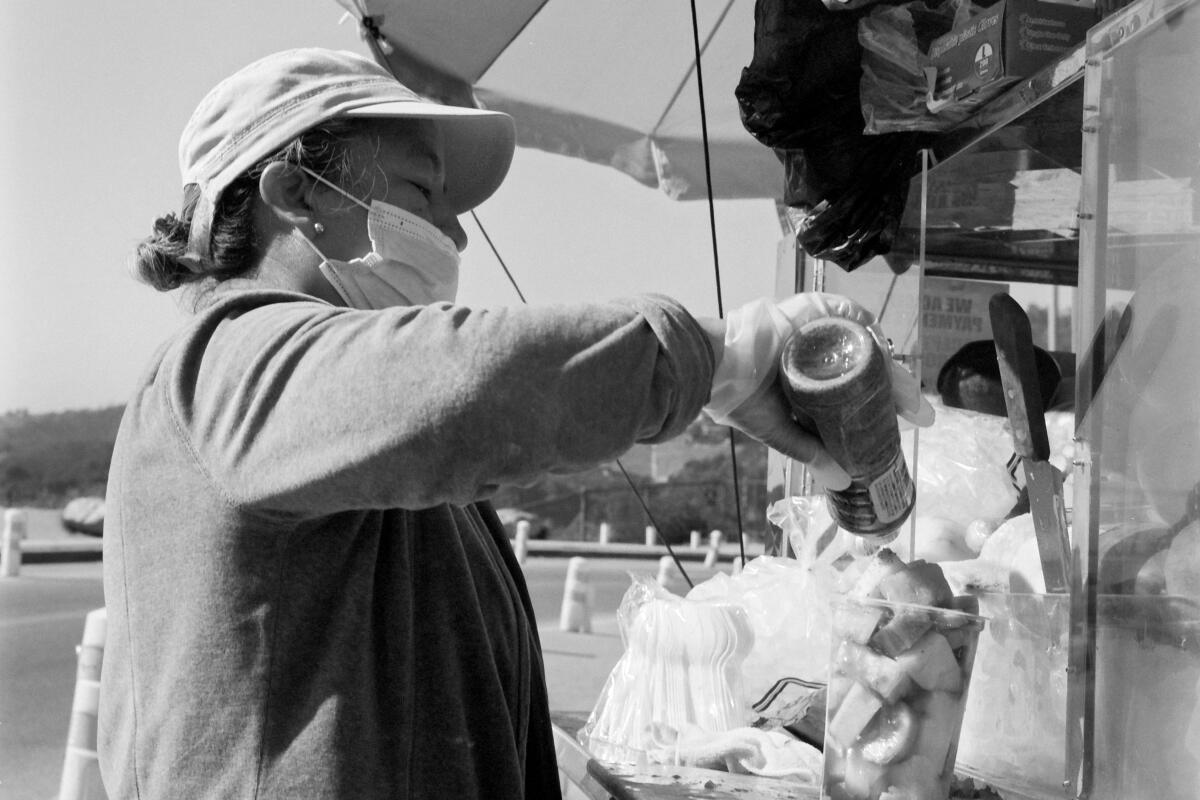
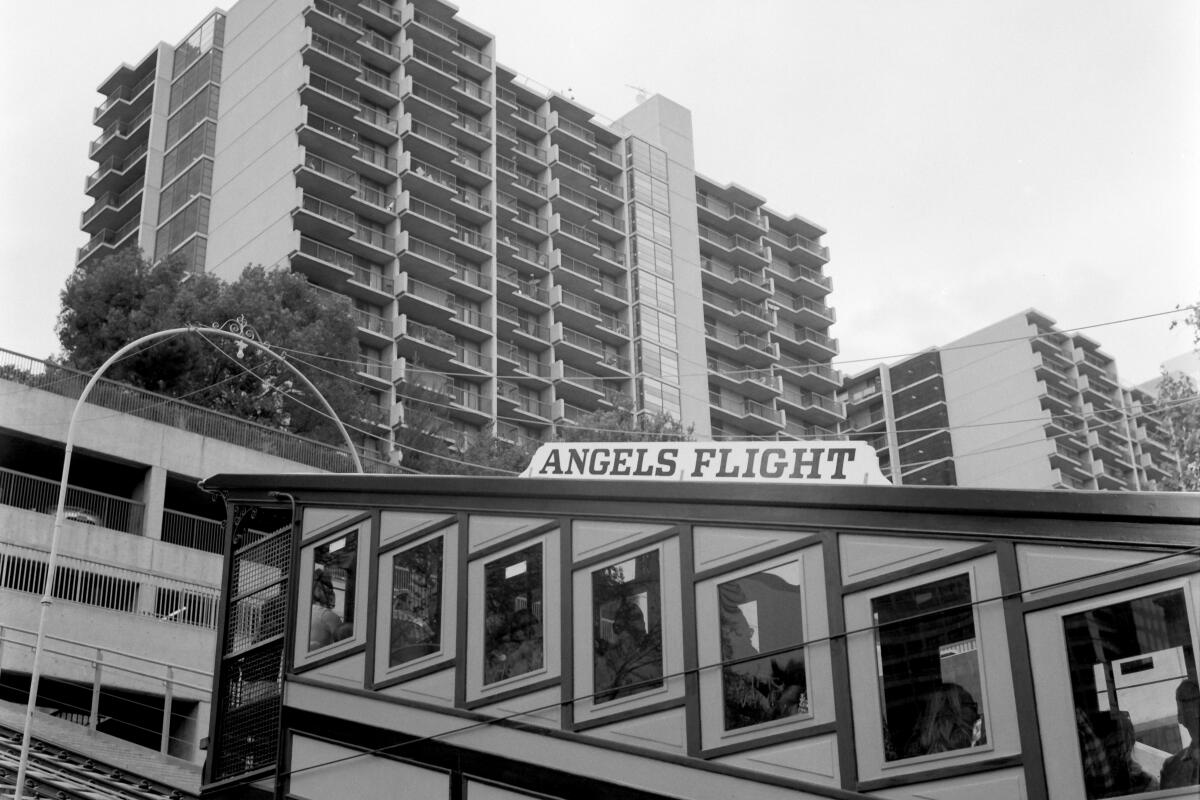
Left, Greg’s appreciation for street food and photography combined, highlighting his respect for both art forms. Right, the Angels Flight funicular begins a descent in downtown L.A. (Greg Yee / Los Angeles Times)
They are a warm embrace of every neighborhood he visited. They don’t need to be gritty or edgy to be beautiful because that’s not who Greg was. He was never arrogant; instead, he was kind and curious, a gentle man who never lost the mischievous bent we knew him for in college.
We can’t know what Greg truly thought of these photographs. Even if we could ask him, he’d probably make some offhand self-deprecating joke and laugh us off. But working for the last year archiving his photos, something has become abundantly clear: He had an unrivaled, unconditional love for every corner of this place.
Now that he’s gone, looking at his photography is almost like reaching back in time for one last drive. We can imagine ourselves back in Greg’s car, one of his playlists flowing loud from the stereo, the city blurring by as he cackled about a terrible mural or mused about a hip cafe that replaced a great old bakery. That he left these photos behind was a gift he didn’t know he was giving us, a bittersweet rumination on L.A. that we wish he could continue.
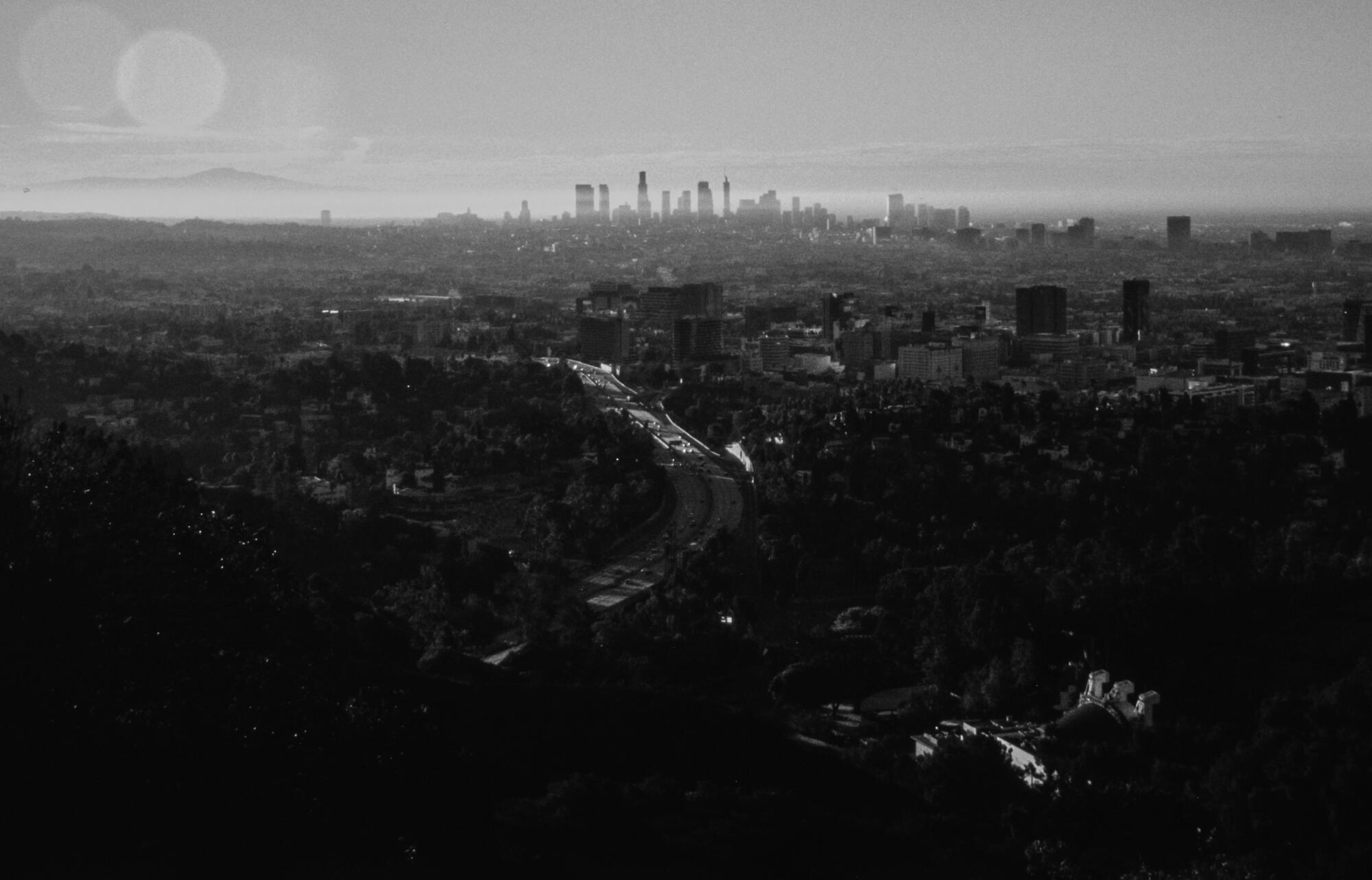
The sun sets over the City of Angels.
(Greg Yee / Los Angeles Times)
These, in our estimation, are some of Greg’s best photographs.
We hope that you, like us, will feel the love that emanates from these photos, and that maybe you’ll even be inspired to pull over during your next commute to admire the city, to breathe Los Angeles in and appreciate its landscape the way Greg did.
Greg would have turned 35 today.
This story originally appeared on LA Times

